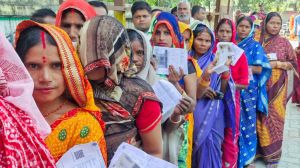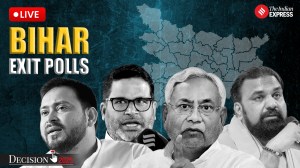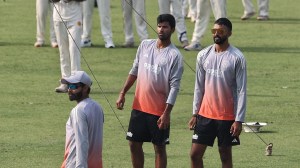Must police be so anti-people?
A boy went to a police station in Bihar to report his father’s mysterious death. He was promptly arrested and tortured until he managed...

A boy went to a police station in Bihar to report his father’s mysterious death. He was promptly arrested and tortured until he managed to kill himself.
In a police station in the posh Golf Club compound in Bangalore, a lawyer who offended a politician was beaten up and his body dumped near a railway track far away.
In one of the most notorious atrocities of Emergency period, an engineering student in Kerala was tortured horribly in a police camp. According to police confessions many years later, his body was got rid of in ways that left no trace.
In Punjab’s police training school, IPS training includes instructions on how to get 100 per cent success in interrogations. Sample: ‘‘Take the suspect to a well, tie his ankles and hang him upside down. Most will break within 5 minutes. The hardened ones will last up to 15 minutes. If the confession is not convincing enough, just let the rope go.’’
After half a century of independence, why does our police force treat public so brutally? It’s not a new question, but it gets asked again and again because police atrocities keep happening again and again.
The latest scenes were enacted in the forests of Kerala where an Adivasi agitation for land ended in horror. So pathetic was the condition of the Adivasis and so excessive the use of force by the police that, for the first time in many years, a local Kerala issue attracted national attention.
Television broadcast two scenes. (Only two because an alert police threw out all media people from the area as soon as the atrocities began.) Each scene showed a man lying crumbled on the ground and policemen taking turns to beat him with lathis and rifle butts as if they were killing a snake.
If there was anything more abominable than the horror scenes, it was the state Forest Minister proclaiming on camera that the police only beat the Adivasis below the knee and that their exemplary restraint needed to be complimented. The channels then cut to the police sadistically belabouring men lying helplessly on the ground. The ability of politicians to lie so blatantly is a sign that end of the world is near.
Actually, the politician is the main reason for the police becoming an anti-people conglomeration of brutes.
As soon as they got power and especially during the 1970s and ’80s, politicians started using the police to settle their private scores, to collect funds, even to fix elections. Police officials took the cue and outdid their masters.
Brutalisation has become so integral to police culture that even recruits are savaged by senior officers inside police camps. There have been cases of policemen committing suicide on account of unbearable cruelties by their superiors.
Some IPS officers recently argued that police violence was not exclusive to India, citing as example the beating up of Rodney King, a black motorist in Los Angeles, by white policemen. But those who used this example conveniently ignored the sequel.
The violent policemen were taken to court and when a white jury acquitted them, riots broke out in Los Angeles. In civilised countries, third degree by police is an exception. In India it is the rule.
That over-rated super cop, K.P.S. Gill, supports the police habit of beating people first and then asking questions. ‘‘Without a slap,’’ he says, ‘‘people don’t budge’’. So that’s why he slapped the lady civil servant in the wrong place. She budged all right — in the direction of the court. What a culture, Mylord!



- 01
- 02
- 03
- 04
- 05




























